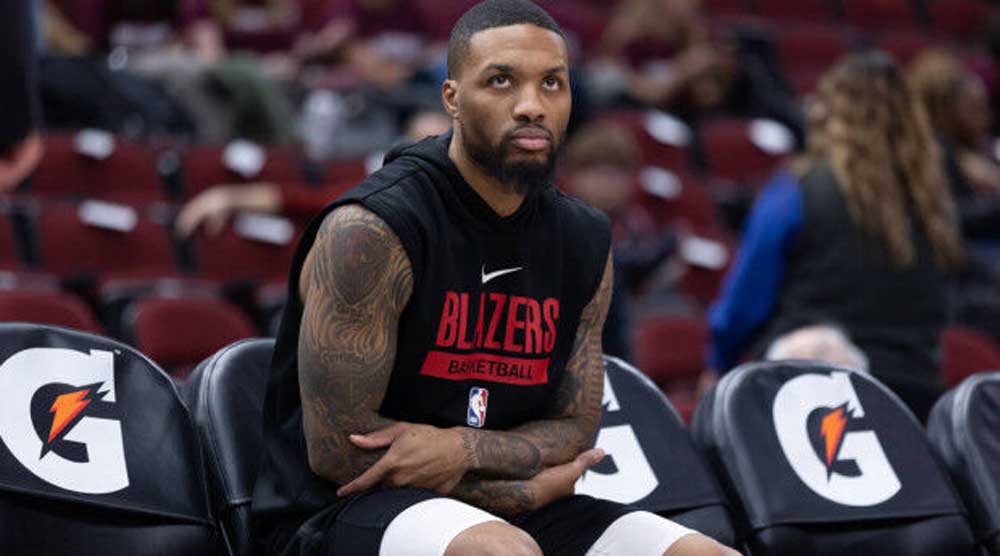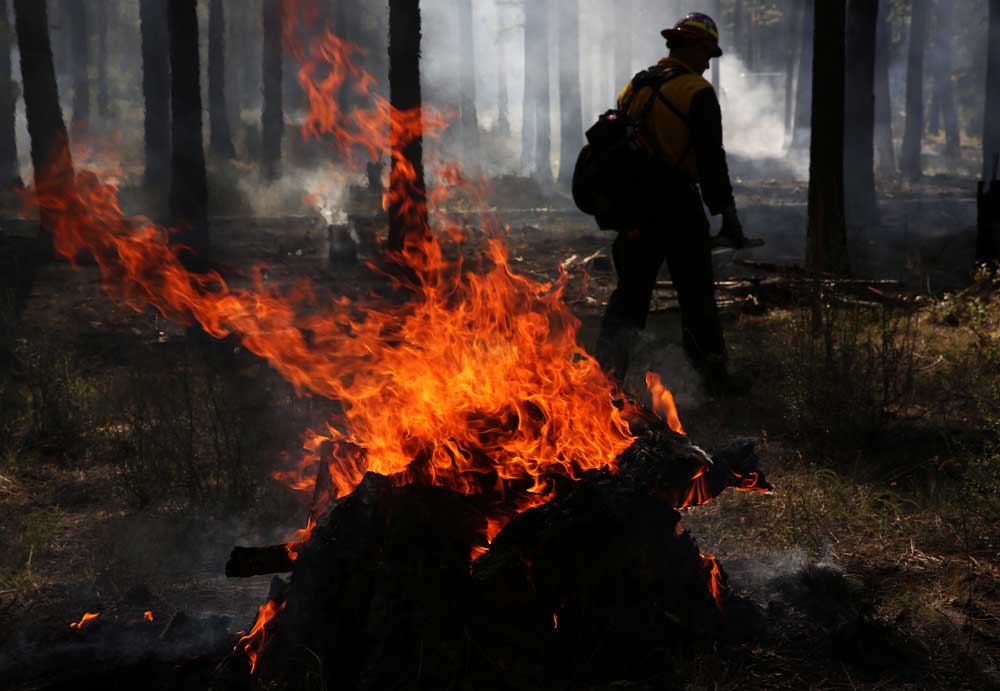Trainor: Two heavy losses to Oregon sports scene
Published 12:45 am Tuesday, August 15, 2023

- Damian Lillard
Despite the success of the North Bend Little League softball team, it has been a rough summer for sport in Oregon.
Trending
First, Trail Blazer and perfect human man Damian Lillard announced he had enough of the team’s downward trajectory and asked for a trade to sunnier climes. Then, the University of Oregon (along with rival University of Washington) announced they were pulling up stakes and joining the Big Ten.
The demise of the Pac-12 and college sports in the Pacific Northwest may have the most lasting impact, but first lets talk about the heartburn of Lillard requesting a one-way ticket out of Oregon.
For years, dopey talking heads from New York and Los Angeles would shake their head when discussing Lillard, possibly Oregon’s most popular and beloved athlete. They couldn’t comprehend that Dame was satisfied in “small market” Portland, having long ago won the hearts of local fans. Dame didn’t seem to want or need anything else, save for his city to be behind him and his team to be trying its hardest. That was hard for drama-obsessed journalists and fans to understand, but it was pretty simple at its core: Dame was happy to be here and we were happy to have him.
Trending
But the team started losing, on purpose. First they fired their always-overachieving coach, Terry Stotts. Then, after injuries derailed the 2021-2022 season, they tanked. Last year, with the team on the cusp of the playoffs and Dame on pace for his best season ever, they shut down their stars for the smallest of shots to land a seven-foot Frenchman. When that didn’t work they drafted Damian’s replacement — a supposed can’t miss prospect.
By that time the writing was on the wall. Lillard made the divorce official just a few days later.
Lillard is an athlete it feels good to root for. He’s a man of the people, wearing the letter “O” on his jersey to represent his hometown of Oakland, his college town of Ogden, Utah, where he went as a little-recruited and undersized point guard, and of course his adopted home of Oregon. He’s the best kind of sports hero: A genuinely good person who achieved top results, who represented their team and community, who gave you — the fan — everything he had.
The likely dissolution of his Trail Blazers career is a reminder of one thing. In sports, as in life, once you let the funk of losing in it’s hard to disinfect it from a locker room. One you stop caring, its hard to start again.
Ducks fly away
For most Oregonians, the departure of the University of Oregon to the Big Ten stings even worse. Its likely the death knell for the Pac-12, a 108-year-old conference that helped shape athletics in the West for a century. And it puts into doubt one of the longest played and strongest rivalries in sports: Oregon vs. Oregon State.
No longer officially called the Civil War, the Ducks and Beavers have battled on the gridiron 126 times since 1894. Only six college football rivalries have been contested more often. And no two schools have played each other more often in men’s basketball, with 363 games between the squads from Eugene and Corvallis.
How long will the noble tradition continue?
It’s in danger as the corrupt NCAA begins to crumble and conferences rearrange to snatch up the wealthiest brands. The rearrangement is all about football, television and money — what’s best for athletes and fans isn’t a factor in the equation. The field hockey and swimming teams at UO will now have spend infinitely more time traveling week after week to Iowa, Wisconsin, Ohio, Minnesota and back. And for what? So the university will get a share of a bigger television network rights deal secured by the Big Ten.
Harrumph. These are short-term and soulless risks that will eventually destroy college athletics as we know it. It’s a different kind of tanking that could prove to be the bright side to all of this.
It’d be hard to find a more corrupt and exploitative endeavor than big-time college athletics, where coaches and athletic directors and conference presidents rake in millions of dollars in salaries each year on the backs of unpaid and underpaid labor. In 43 states, the highest-paid public employee is a college football coach — not exactly a ringing endorsement for the American higher education system.
Sports can, and does, teach people who play them important life lessons. It makes them tougher and stronger, better at winning and better at losing. It helps make teammates and better leaders. Sports are a wonderful addition to a well-rounded education.
Money-first decisions, on the other hand, teach young people only one important life lesson: Administrators and TV executives don’t care about them. They only care about money.








